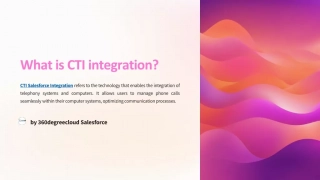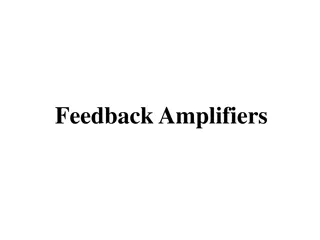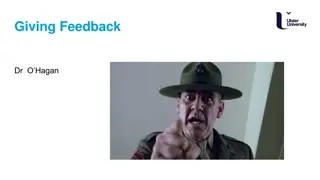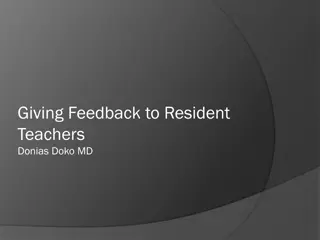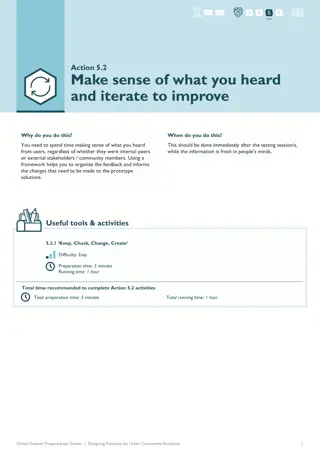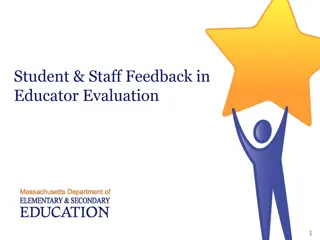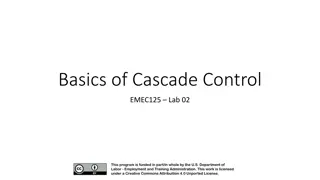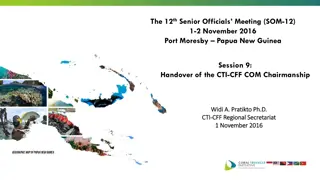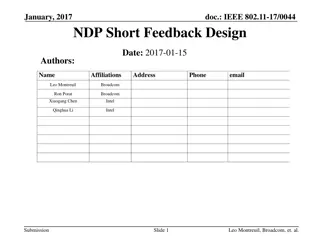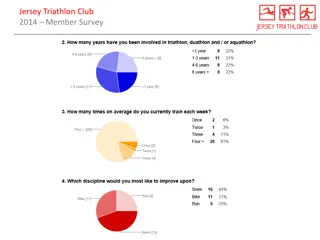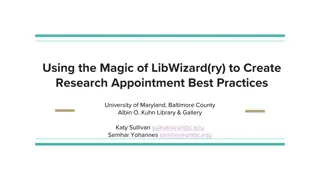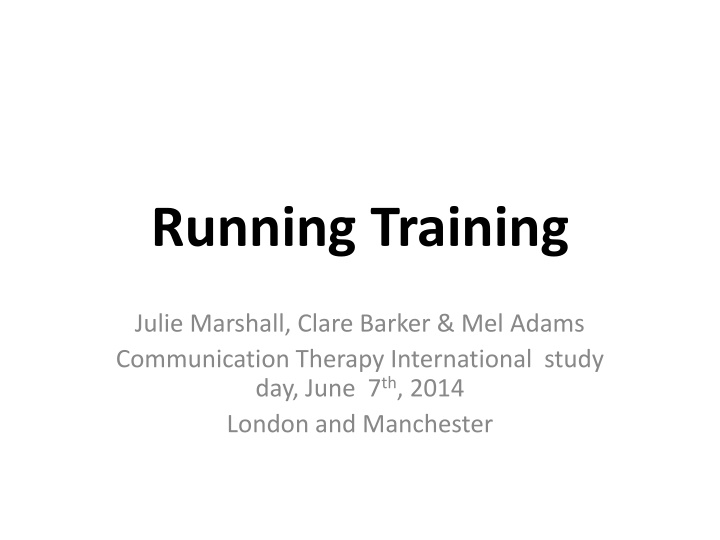
Effective Training Strategies for Professional Development
Explore the various facets of training, including defining it, types, key questions, and considerations like impact, purpose, and participant usage. Dive into the nuances of requested training, its impact, and empowering participants. Learn ways to enhance skills, knowledge, and attitudes through tailored training methods.
Download Presentation

Please find below an Image/Link to download the presentation.
The content on the website is provided AS IS for your information and personal use only. It may not be sold, licensed, or shared on other websites without obtaining consent from the author. If you encounter any issues during the download, it is possible that the publisher has removed the file from their server.
You are allowed to download the files provided on this website for personal or commercial use, subject to the condition that they are used lawfully. All files are the property of their respective owners.
The content on the website is provided AS IS for your information and personal use only. It may not be sold, licensed, or shared on other websites without obtaining consent from the author.
E N D
Presentation Transcript
Running Training Julie Marshall, Clare Barker & Mel Adams Communication Therapy International study day, June 7th, 2014 London and Manchester
How would you define training? Passing on skills, knowledge, awareness, experience and attitudes Tailored to individual/group Working alongside others Demonstrating strategies in practice video not enough Staying in touch / supporting remotely Discussed issues attached to the label training skill sharing? Task shifting? Facilitator?
What different types of training can you think of? Practical Theory based Supportive/encouraging Training others to train
Key questions 1. Has training been requested if so by whom? 2. What is the purpose and possible impact of the training? 3. How will participants use the training? 4. What group/s are you training? 5. Who are the participants + what do they want? 6. Content of the training 7. What is the appropriate style of training? 8. What resources do you have? 9. How will you evaluate and demonstrate impact?
1. Has training been requested if so by whom? Did anyone request the training? What is the requester s agenda? What is their role? How do they want the training to be used? What power do they have to ensure training is implemented? How does this request fit with what participants want?
2. What is the purpose + possible impact of the training? To develop participants knowledge / skills / attitudes How will the new K/S/A be used? (more later) Is the training ethical (i.e. are you giving sufficient skills; are you generating need that can t be met?) Will the underlying system facilitate this (capacity building of an organisation not just an individual)? Will the training empower people or increase dependence? Will it improve the lives of PWCD + their families?
3. How will participants use the training? To provide direct services for PWCD and their families; To develop services; To challenge attitudes; To increase awareness about communication disability; To make appropriate referrals to SLT; To train others to do any of the above.
4. What group/s are you training? Qualified SLTs Pre-qualification SLTs PWCD A counterpart Family members Other health care workers (eg PT OT, Public health, Drs, nurses, Community Health Care worker) Managers Carers Community members Education /other sector workers (teachers, CBR) Community leaders Policy makers Single or mixed group?
5. Who are the participants + what do they want? The participants Prior knowledge, education, experience Learning styles and prior experiences of training / education Willing participants? Voluntary attendance? Part of their work or an extra? Length of the day What do they want/expect? Do they expect allowances/payment? What level of training do they want? Setting learning outcomes Certificates, awards, qualifications?
6. Training content Details about SLC or feeding difficulties (types etc) Services in hospital or community Assessment, diagnosis, intervention Attitudes towards PWCD Prevention of SLCN Awareness raising (eg to refer) Universal, targeted or specialist services Service development eg management Pre-qualification education for SLTs eg training for clinical education, training to manage and develop SLT pre-qualification programmes. What are your key messages?
7. What is the appropriate style of training? Didactic Interactive Experiential Role play Clinical experience Notes, powerpoint, videos , case examples, manualised training
8. What resources + knowledge do you (+ local partner, if relevant) have? Prior experience of teaching and training (Face-to-face /remote/on-line) the topic (theory and clinical) the country, setting, trainees + their roles, local language/s Status Training materials: ppt, slides, videos, electricity, PWCD/feeding difficulties, booklets and manuals - appropriateness A counterpart (+ experience of working together)
Other considerations Are you a short, medium or long term visitor? Are you training alone or as part of an MDT team? Recognising/being able to say when you can t/don t have the skills to provide the type of training requested Cultural considerations e.g. how to provide feedback, losing face, levels of confidence Use of interpreters and accuracy of translation Practical issues, e.g. electricity/generator? Are you the best person to provide training?
9. How will you evaluate and demonstrate impact? Will you assess the participants acquisition of KSA? Immediate and longer term evaluation Where will you measure impact Methods eg SMART goals Outcome mapping Clinical audit data Stories of change
Resources 1. CTI volunteer advice pack 2008 http://comtherapint.files.wordpress.com/2014/02 /advice-pack.pdf 2. http://www.rcslt.org/members/docs/training_wid er_workforce 3. MAITS package on dysphagia (mel@maits.org.uk) Practical issues, e.g. electricity/generator? Practical issues, e.g. electricity/generator? Please email your ideas for additional useful resources to j.e.marshall@mmu.ac.uk We will put this presentation on the CTI website.
Scenarios discussed at study day:
1. You have been asked by the head of a special school in Dhaka, Bangladesh, to design a training course in SLT for their teachers. What might the issues be? What do you want to find out? What will you offer to do? 2. You are a SLT and are part of a team visiting Nepal to carry out primary cleft palate surgery. Restrictions in funding mean that it is unlikely that there will be any return visit to this remote location for at least five years. What can you do to increase the impact of your input beyond your two-month visit?
3. You have been asked to carry out a six-month placement in Malaysia, based at a large hospital, to improve services for people with SLCN across one state. There is a SLT pre-registration programme based at the Univ in Kuala Lumpur & there are a small number of qualified SLTs in the country. How could you best use your time to integrate with local services and increase sustainability? 4. You are the fourth in a series of speech and language therapists to go and do a one month placement in an orphanage in Romania. You will be working with both children and staff. How can you increase the chances of such a short-term placement having a lasting impact?
Manchester feedback on Scenario 4: Initial observation/information gathering of setting: what do staff already do and why? Knowledge of staff Staff availability and staff: child ratio High staff turn over? Which staff members are most receptive to support/advice Discussion with managers around what would be feasible in the setting What did the previous SLTs do and what was their agenda/views Is there a program of work already in place?
Sustainable options of input: Staff training Case based approach Problem based learning Training considerations: Can/will it be cumulative Who? (individuals/groups) When? (how long, time of day) How? (theory/practical/training of long standing staff members to train up others) Staff preferences
Take home messages from the London group on all the scenarios Things to consider: There s a lot more to consider than one might think! Why have I been invited what is the agenda? am I filling a gap, am I cheaper to employ than a local therapist, will I add prestige to the organisation Am I going to train or share skills. Need to value the skills of the people I will be working with. Approach as a collaboration - a joining up of everyone s areas of strength/expertise. Liaise and be flexible. Think about the long-term impact sustainability issues Trust the value of any previous input and record carefully what I do (to aid continuity)
Take home messages cont Why me? Am I the right person? Is there someone more local? What is everyone going to get out of it in the long-term How can I use my skills most effectively What is already there don t under or overestimate How I might be perceived/received by local SLTs will perceive your presence and how I might approach this Don t forget the soft skills clinical reasoning, caseload prioritisation, case-note keeping, multi-disciplinary working, models (universal vs. targeted, medical vs. social) Less is more: keep it focused, concrete and accessible
Key Positive Messages There is a lot to take away for oneself a lot of valuable learning You can get there work out a way of providing something useful if you are flexible and not too fixed in your own agenda Don t underestimate what transferable skills we have International work is an opportunity to apply SLT skills to a different context Advances in technology are making all of this work easier every day CTI: It s good to have the opportunity of getting together with other people here to share ideas etc

